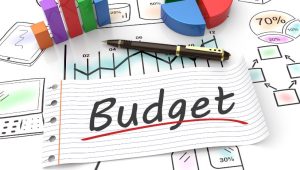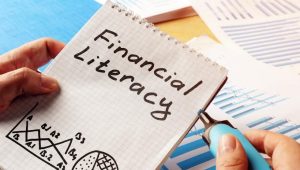
Best Financial Habits You Should Develop This Year
Some people never seem to have money, no matter how much their salary increases. Others somehow seem to manage to afford it all, always have some money saved for emergencies, and even manage to invest in the future. Some can’t make it until the next salary in their 40s, while others set aside a bit for their retirement fund in their mid-20s.
While sometimes it comes down to luck and opportunity, mostly it all boils down to some people just having better financial habits. Still, what are these good financial habits and how do you develop them in 2024? Let’s find out!
What are 5 healthy financial habits?
1. Budgeting
The first thing you need to do is make a budget. This is something that the majority of individuals and households, sadly, do not do, and it’s something that can cause a world of problems in the future if you don’t.

The majority of your expenses are fairly simple to track. Your rent and mortgage, as well as your subscriptions, are known to you in advance. When it comes to your utilities, you can always do a historical comparison and analysis.
It’s also important that you understand the fact that not all months are the same. For instance, while it’s important that you’re more financially disciplined during the holiday season, it’s also vital that you plan a heftier budget for this time period. Factor in presents and increased heating bill, etc. In other words, make your budget flexible and adaptable. Also, do a bit of forecasting of your own.
Budgeting will also help you while setting goals and it will allow you to execute all your plans to the best of your abilities.
2. Expense tracking
Tracking expenses is incredibly important, and it’s never been easier. All you have to do is download a budgeting app and make an entry every time you spend money. It’s quick and painless to do, and future you will thank you for it.
To make things easier, most of these apps are completely automated, meaning that every time you pay with your card, it’s automatically uploaded. Physical receipts usually have a QR code that makes them easy to scan, but even without it, the OCR technology has advanced so much that it can accurately read from these photographs.
![]()
There’s a reason why this is so important. Namely, chances are that you’re spending far more than you realize. It’s the same thing as figuring out how you spend your time online. Your presumptions are one thing but if you actually download a time management app, you’ll see that your estimates were way off.
The key thing to tracking your expenses lies in helping you figure out if you’re on the right track. Even more importantly, by figuring out where all your money goes, you’ll have a far easier time rectifying your reckless spending.
Also, as you improve your financial status, you’ll be able to analyze how your spending habits changed. For instance, you may notice that you’re traveling more or spending more on luxury goods. The thing is that, for a lot of people, an improvement in status comes silently and stays unnoticed.
3. Investing
Another thing you need to do is consider investing. There are many great trading apps in the UK that you could consider using, which means that you don’t even have to leave your chair in order to make the right investment. The challenge lies elsewhere.
First, you need to get the investment capital. This is a huge challenge of its own, and it would require a whole article just to get into this. The bottom line is that you reduce your liabilities and set some investment money aside. More importantly, you don’t have to wait to amass a huge capital and invest big. Start small and start early. That way, the amount of investment money will accumulate.

Another challenge is figuring out the best investments, which, although a challenge, isn’t nearly as complex as it was just a few years ago. Today, with so many AI-based analytical tools, you have more computing power on your side than ever before.
Other than this, you also have so many resources available for research. You can follow industry and market trends, read whitepapers and reports by companies whose stocks you intend to buy, etc. The information is available, and analytical tools are accessible; all you have to do is start using them.
4. Setting up an emergency fund
The majority of people ruin their finances when there’s an emergency that they can’t cover. For a person living paycheck to paycheck, even a loss of a single month of income can lead to catastrophic long-term consequences.
This loss of income is not the only such emergency. What if there’s damage to your vehicle that needs to be repaired/sanated? What if your boiler breaks down in the middle of winter?

Some people handle these expenses by getting payday loans. These are comparatively small loans that shouldn’t take too long to pay off, but they’re actually horrible for your finances. They don’t always require a specific credit score but they can have APR as high as 300-500%.
The best way to insulate yourself against these situations is to set up an emergency fund. This way, you won’t ruin your finances every time there’s an emergency. The rule of thumb is that they should contain anywhere from three to nine months of living expenses.
The thing is that this should probably be your first priority. This is something you should do before you start investing, although you might want to get rid of some of your debt first.
5. Investing in your financial literacy
The more you know, the more efficient you are. This is true in every single field in the world, and finances are not an exception. Still, finances is a pretty broad term, which is why you need to narrow it down on a need-to-know basis and start reading up on some of the most rudimentary financial principles.
Learn more about debt, taxes, and investing, then move on to bigger topics. There’s a ton of research material online, but it’s also worth your while to enlist in a course or two. The thing is that you need to embrace the culture of continuous learning if you’re to get anywhere in life.

The first three things you need to understand are budgeting, taxes, and debt management. Past that, you should learn a thing or two about insurance, saving, and investment. You should also add retirement planning and even estate planning into a mix.
There are so many examples where this theoretical knowledge can have a practical use. For instance, when it comes to credit scores, understanding what constitutes it will actually help you understand what you need to do to improve it. It will also help you understand what you need to do in order to avoid ruining it in the future.
Leading a good financial life takes good habits and long-term commitment
One last ingredient to leading a healthy financial life is to stick to your good habits in the long run. You see, you’re making money every month and facing new expenses every day for as long as you live. This is why this isn’t just a one-time concentrated effort. It takes a while to set up great financial habits but once you get started it will become progressively easier.





